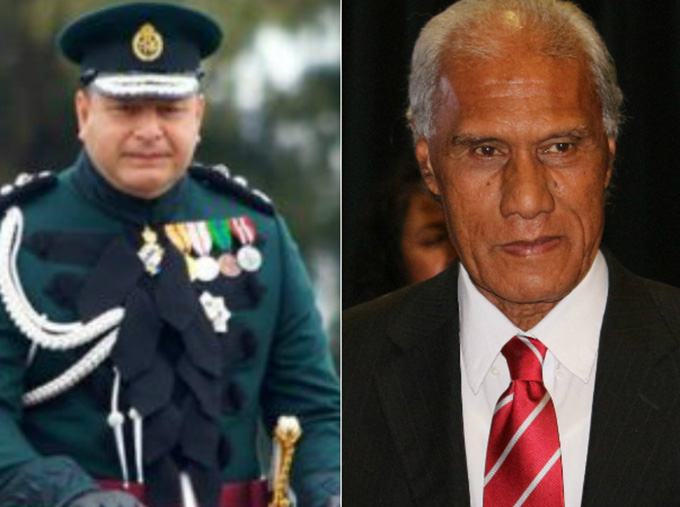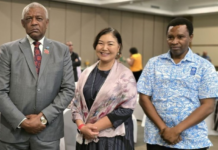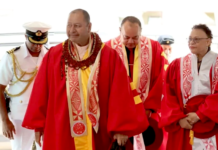By Kalino Latu, editor of Kaniva News
The government of Prime Minister ‘Akilisi Pōhiva has planned an audience with the King of Tonga after a New Zealand legal expert advised that the king had no right to judge the merits of legislation passed by Parliament.
A government spokesperson said the plan was made after cabinet accepted the New Zealand lawyer Dr Rodney Harrison’s recommendations.
Pōhiva told Kaniva News in a recent interview that six Amendment Bills were submitted by the Tu’ivakanō government in 2014 and were passed by Parliament.
However, when submitted to King Tupou VI in Privy Council for his approval and signature he rejected the new laws.
These amendments included Acts of Constitution of Tonga (Amendment Bill) 2014, Judicial and Legal Service Commission 2014, Tonga Police (Amendement Bill) 2014, National Spatial Planning and Management (Amendment Bill) 2014, Magistrate Court Amendment Bill 2014 and Public Service Amendement Bill 2014.
Pōhiva said the Amendment Bills 2014 were submitted by the Tu’ivakanō government after the constitution was reviewed by a Commonwealth constitutional law expert, Peter Pursglove.
As Kaniva News reported, Pursglove said that Tonga’s 2010 constitution did not uphold democracy, the Privy Council lacked any democratic composition or accountability and the judiciary lacked accountability and transparency.
Amendment bills left
Pōhiva said when his government came to power in November 2014, the Tu’ivakanō government had left these amendement bills for them to complete working on them.
He said they pursued some of these bills, including some that concerned the assignment of the Attorney-General to the Privy Council, which Pursgrlove said was unconstitutional.
In a response to a request by the Prime Minister’s office for an opinion on the legality of the Royal Assent Order 2011, Dr Harrison said it appeared there was a misconception that the king had the “power to grant or refuse the Royal Assent conferred by Clause 56 of the Constitution”.
Dr Harrison recommended that the government try to get the king to alter his views on his powers by “reasoned persuasion”. Seeking a judicial ruling is also an option.
The government spokesperon said the Prime Minister wanted to talk to the king first as he wanted to make sure the constitution was correctly interpreted and followed through.
He said the Prime Minister believed the king would consider Dr Harrison’s advice favourably.
Vetoed by king
Minister of Justice Vuna Fa’otusia said many of the amendments to laws and the constitution passed by Parliament were vetoed by the king because of the Judicial Committee.
The Judicial Committee was comprised of some law lords and was chaired by Lord Dalgety of Scotland. The minister said if the committee did not agree with laws and amendments to the constitutions which were already passed by the Parliament the king would reject those laws.
Dr Harrison said the Law Lords played no specific constitutional role and they did not have any constitutional function or role as scrutineers of legislation or the legislative process.
Royal Assent 2011:
56 Power of Legislative AssemblyThe King and the Legislative Assembly shall have power to enact laws, and the
representatives of the nobles and the representatives of the people shall sit as one
House. When the Legislative Assembly shall have agreed upon any Bill which has
been read and voted for by a majority three times it shall be presented to the King
for his sanction and after receiving his sanction and signature it shall become law
upon publication. Votes shall be given by raising the hand or by standing up in
division or by saying “Aye” or “No”
This article is republished by Asia Pacific Report with permission.














































